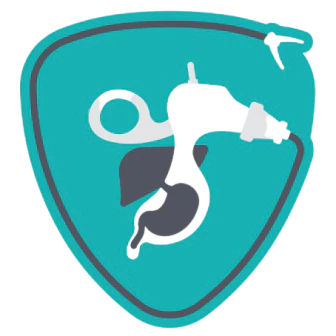Iron is an essential mineral that helps our bodies function properly. It plays a key role in producing haemoglobin, which allows red blood cells to carry oxygen throughout the body. When there is not enough iron in the body, it can lead to iron deficiency. This condition can cause fatigue, weakness, and even more serious health problems if left untreated. One of the potential risks for women with iron deficiency is an increased chance of stroke. Let’s explore how iron deficiency relates to stroke and why it’s important for women to pay attention to their iron levels.
How Iron Deficiency Increases Stroke Risk
When there isn’t enough iron in the body, the blood has a reduced capacity to carry oxygen. This can lead to a condition known as anaemia, where the body does not have enough healthy red blood cells. Anaemia can cause a lack of oxygen to vital organs, including the brain. In some cases, this oxygen deficiency can increase the risk of stroke, which happens when the blood flow to the brain is interrupted.
In women, iron deficiency is particularly common due to menstruation and pregnancy, making it important to manage iron levels. Women who experience heavy menstrual cycles are at higher risk of developing anaemia, which can further increase their chances of stroke. Managing iron intake and ensuring proper levels can play a role in stroke prevention.
Iron Deficiency and Brain Function
The brain requires a steady supply of oxygen to function well. When iron levels are too low, the brain may not get enough oxygen, leading to cognitive issues like memory problems, difficulty concentrating, and in severe cases, stroke. For women who already face a higher risk of anaemia due to biological factors, the impact on brain function is even more concerning. Low iron levels may not only lead to short-term effects like fatigue but can also have long-term consequences on overall brain health.
Common Causes of Iron Deficiency in Women
There are several reasons why women are more likely to experience iron deficiency. These include:
- Menstruation: Women who have heavy periods lose more blood, which leads to a loss of iron.
- Pregnancy: During pregnancy, a woman’s body needs extra iron to support the growing fetus. Without proper iron intake, both the mother and baby can be affected.
- Diet: A diet lacking in iron-rich foods like red meat, beans, and leafy greens can contribute to low iron levels.
Understanding these causes can help women be more mindful of their iron intake and take steps to prevent deficiencies that could lead to serious health problems like stroke.
Recognizing Iron Deficiency Symptoms
Iron deficiency can develop slowly, and many women may not realize they are affected until they experience noticeable symptoms. Some common signs include:
- Fatigue and weakness
- Shortness of breath
- Dizziness or lightheadedness
- Pale skin
- Cold hands and feet
If left untreated, iron deficiency can worsen, leading to anaemia and increasing the risk of stroke. Recognizing these symptoms early can help prevent more serious health issues.
Importance of Iron Intake for Women’s Health
Maintaining proper iron levels is crucial for women’s overall health, especially when it comes to preventing conditions like stroke. Including iron-rich foods in the diet, such as lean meats, beans, and spinach, can help boost iron levels naturally. In some cases, iron supplements may be recommended, especially for women with heavy menstrual cycles or those who are pregnant.
Regular check-ups and blood tests can also help monitor iron levels and ensure they are within a healthy range. By taking these simple steps, women can protect their health, reduce their risk of stroke, and improve overall well-being.
Iron deficiency is a common issue among women, and it carries serious health risks, including an increased chance of stroke. Paying attention to iron levels, recognizing the symptoms of deficiency, and taking steps to maintain healthy iron intake can make a significant difference. Prioritizing iron intake is essential not just for energy and vitality, but also for long-term brain health and reducing the risk of serious conditions like stroke. Women should take proactive steps to ensure their iron levels are balanced to protect their health and prevent future complications.

